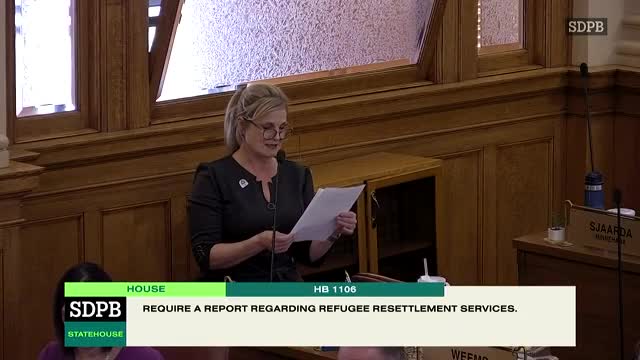House deadlocks on bill moving school bond elections to primary/general dates; bill fails on tie vote
Get AI-powered insights, summaries, and transcripts
Subscribe
Summary
Members debated whether school districts should be required to hold bond elections on primary or general election dates to raise turnout and reduce costs. Opponents said the measure would reduce local control and could increase total costs; the bill failed on a 34–34 tie.
Pierre — The South Dakota House voted Thursday on House Bill 10‑93, which would require school districts to hold bond elections at either the primary or general election, instead of allowing districts to choose other dates.
Prime sponsor Representative Aylward said the change aims to boost voter turnout and reduce costs tied to off‑cycle or ad hoc elections. “If the voters know that they have something else to vote on, no matter what, that voter turnout is gonna go up,” Aylward said, arguing scheduled dates avoid weather or timing problems that can depress participation.
Opponents, including Representative Stevens and Representative DeGroot, warned the measure would limit local school boards’ flexibility and could increase long‑term costs. Stevens said the bill could force districts to wait for the next primary or general and thereby pay more interest, citing variability in rates and project timing. “This bill completely takes it away. It allows those who are in the financial industry to know, hey. There's only 2 times they can do this and they can arrange their rates accordingly,” Stevens said.
Supporters said coordinated election timing would encourage civic engagement and make large capital decisions more visible. Representative Jordan said the bill would “bring more people out and more people to have a say.” Municipal officials and some school districts argued the change could delay urgent projects or require special elections, costing more.
Final vote: House Bill 10‑93 failed by tie, 34–34 with 1 excused. Representative Soy later indicated intent to reconsider.
The measure drew extended floor debate on local control, taxpayer cost and turnout data; members disagreed on whether statutory notice requirements, local outreach, or changing election timing best addresses low turnout and cost issues.
—
